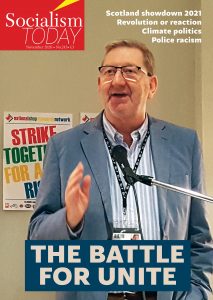Almost six years after it was set up, the first phase of the Undercover Policing Inquiry – the Mitting Inquiry – finally took place for fourteen days from 2 November 2020. HANNAH SELL looks at the lessons to be learnt, and introduces the opening statement to the Inquiry made by the legal team for three Socialist Party members.
The first tranche of the Inquiry covered the formation of the ‘Special Demonstration Squad’ (SDS) in 1968, then known as the Special Operations Squad, and its activities up until 1972. The next phase, covering from 1973–1982, is due to take place in the spring of next year. The Inquiry as a whole, chaired by the retired judge Sir John Mitting, is expected to finish as late as 2026.
Moving at a snail’s pace the Inquiry is also not very public. Unlike other recent public inquiries the first phase was not livestreamed as demanded by core-participants. It has not released the names of the big majority of the organisations spied on, nor has it given us the real – or even the cover – names of the majority of spies. The ‘non-state core participants’ – those who were spied on – have in almost all cases still received none of the police files relevant to them. The SDS reported to MI5, the domestic secret security service, but the latter’s actions are not part of the Inquiry.
Read more